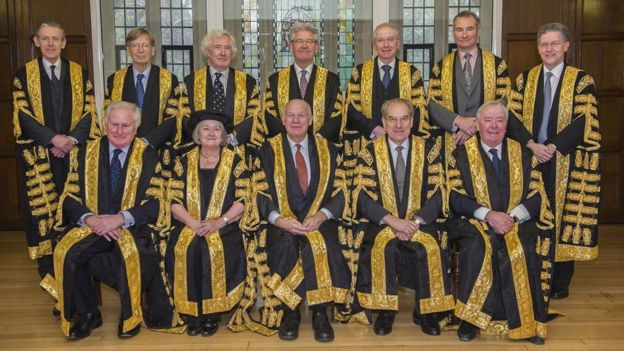On Tuesday, by a majority of eight to three, the UK Supreme Court (UKSC) ruled that the government cannot trigger Article 50 TEU without an act of Parliament authorising it to do so. In doing so, the UKSC has sought to reassert the basic constitutional principle of Parliamentary sovereignty and democracy.
However, according to Senior Lecturer in Law, Dr Albert Sanchez-Graells, the UKSC “has done so in a way that both infringes its duties under EU law and does a disservice to the UK parliament.” In his blog, Dr Sanchez-Graells goes on to explain that one of the difficult legal issues on which the Brexit litigation hinges is the interpretation of Article 50, in particular, whether or not it is revocable.
He suggests that as Article 50 is a provision of the Treaty of the European Union (TEU), its interpretation falls within the exclusive competence of the European Court of Justice (ECJ). While the UK is still part of the EU, UK courts are obliged to refer unclear points of EU law to the ECJ, which is the only court with competence to clarify, in particular, whether an Article 50 notice is revocable or not, as well as the conditions which may surround any such revocation.
By accepting the parties’ commonly agreed position on the irrevocability of an Article 50 notice, rather than acting on its obligation to seek the interpretation of this provision by the ECJ, the UKSC has paved the way for the decision to trigger Article 50 to be made in Parliament, before it becomes clear whether the process is irreversible.
We do not yet know whether it is inevitable that the UK will withdraw from the EU either on the terms of the withdrawal deal agreed between the parties in the course of the Article 50 negotiations, or with no deal at all; or whether it remains possible, perhaps under certain conditions, to stop the clock, and reverse the notification, an argument put forward in a recent blog by Professor Phil Syrpis.
A degree of unreality seems to have taken a hold of the political process. The Government, under pressure from the opposition, seems to envisage that there will be a Parliamentary vote on the withdrawal deal. The Liberal Democrats are urging for a second referendum. But, unless Article 50 is reversible, the only options on the table will be the deal, and a prospect of a disorderly Brexit with no deal and no transitional arrangements.
Dr Sanchez-Graells agrees: “Debates and positions expressed by MPs will now not be as meaningful as they could be if it was clear that the triggering Article 50 would actually put (or not) the UK in the unavoidable course of leaving the EU -- with or without an exit deal.”
In the meantime, the UK is a full member of the EU, with rights and obligations intact. Speaking to media on the eve of Prime Minister Theresa May’s meeting with President Donald Trump, Dr Clair Gammage commented, “A bill needs to go through Parliament that agrees how Article 50 is triggered prior to formal trade negotiations commencing.”
She goes on to make the point that, “conversations with Trump, Turkey and others are one thing. But if they develop into formal trade negotiations whilst the UK is still a member of the EU, they will be illegal. Ultimately we can’t enter into such negotiations without significant implications on our relationship with the EU and how we trade with other countries.”
In short, we need to get the negotiations with EU right before we can start formally negotiating with others. And that will take time. Dr Gammage goes on to note that given that “CETA, the trade agreement between Canada and the EU, took seven years to be agreed; the idea mooted by Secretary of State for Exiting the European Union, David Davis, that EU negotiations will conclude after two years is simply unrealistic.”
“In the long term, if we are committed to a ‘Global Britain’, then we have to hope that the negotiators are fluent in WTO language, familiar with our existing terms of trade as part of the EU (and the strengths of our market within the EU), and that they are able to articulate a strategic direction for UK trade that is sustainable.”
